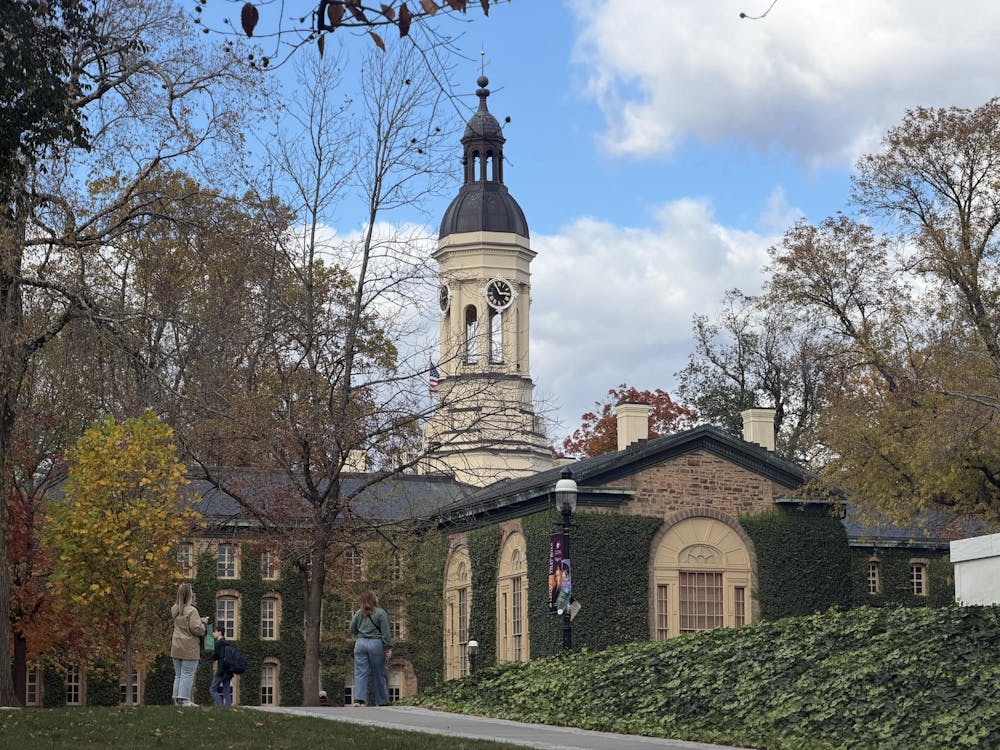In an interview with The Daily Princetonian this September, University President Christopher Eisgruber ’83 was asked about a lobbying group he reportedly spearheaded to fight the Trump administration’s increases to the tax on university endowments. When pressed on which other universities were involved in the group, he declined to name them.
The ‘Prince’ reached out to the 20 U.S. universities with the largest endowments that could be hit by the new endowment tax about whether they were part of the lobbying group. 19 did not respond to multiple requests for comment and one, Rice University, declined to comment.
The list included all seven other Ivy League schools, as well as several private institutions with sizable endowments, including the University of Southern California and Northwestern University.
“When we asked particular institutions to work with us, some of them want to be more open about that, some of them want to be less so,” Eisgruber said during the interview in September.
When discussing his leadership in the lobbying group, Eisgruber said, “There were ways in which, just out of a combination of seniority and role, because I’ve been around for a while and because the Ivy presidents who meet as a league have a rotating chairs position … I was in that seat, which gave me responsibility for organizing some meetings.”
The Atlantic first reported on the lobbying group in August, describing it as a coalition of “two dozen of the richest universities” in the United States. The group reportedly advocated for reducing tax rates on endowment earnings in exchange for universities’ commitment to expanding financial aid.
Under the One Big Beautiful Bill Act, passed by Congress earlier this year, the endowment tax increase could climb as high as eight percent for universities with endowments exceeding $2 million per tuition-paying student — a metric that determines taxation based on the size of both a university’s endowment and its student body.
Notably, the endowment tax requires a minimum threshold of 3,000 tuition-paying students at a university. Other institutions will not be subject taxation under the new policy.

Princeton’s expanded financial aid program, introduced this academic year, could further reduce the University’s tax burden by decreasing the number of tuition-paying students. This strategy — increasing aid to offset tax exposure — would be one version of the same mechanism Eisgruber’s endowment tax coalition reportedly championed.
While the universities participating in the lobbying effort were not confirmed, the number of universities with endowments large enough to be affected by the new tax is relatively small.
Analysis of endowment-to-student ratios found that only eight private universities, including Princeton, would likely face the maximum eight percent rate. An additional 11 may see an increase from 1.4 to four percent, though inconsistent reporting on tuition-paying students makes the impact difficult to quantify.

University endowments have historically remained exempt from direct federal taxation, reflecting their status as nonprofit educational entities. In 2017, under the first Trump administration, the Tax Cuts and Jobs Act imposed a 1.4 percent tax on investment income for private universities with high endowment-to-student ratios.
Now, eight years later, increased endowment tax rates reflect a continued national controversy about the social responsibilities of elite universities, largely propagated by the Republican Party.
With the higher tax scheduled to take effect in 2026, its full financial impact on higher education institutions remains unclear. For now, Princeton stands among a small group of its peer institutions preparing to adjust to a new fiscal landscape.
Vitus Larrieu is a senior News writer for the ‘Prince.’ He is from Pensacola, Fla. and typically covers community activism, the state of higher education, and construction and architecture.
Please send any corrections to corrections[at]dailyprincetonian.com.
Correction: A previous version of this piece included language implying that universities with under 3000 tuition-paying students would be subject to taxation, which is untrue. The 'Prince' regrets this error.








